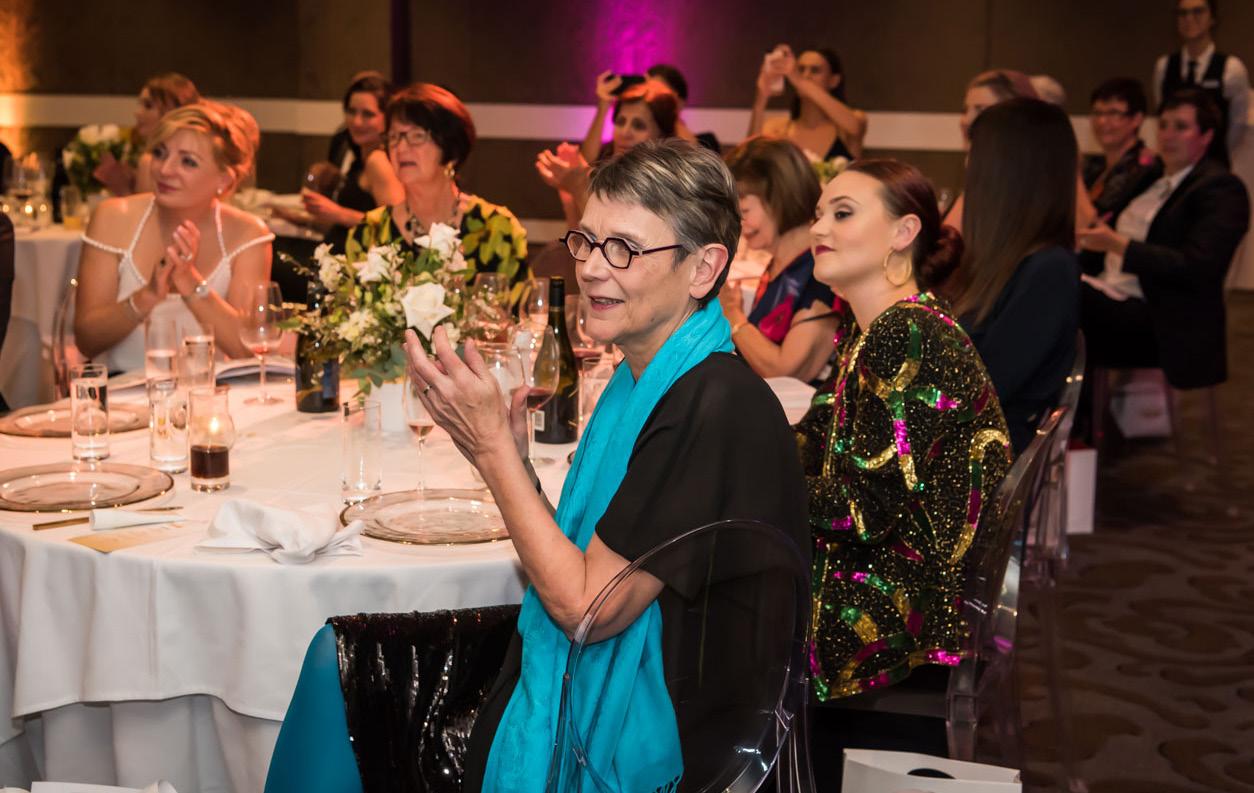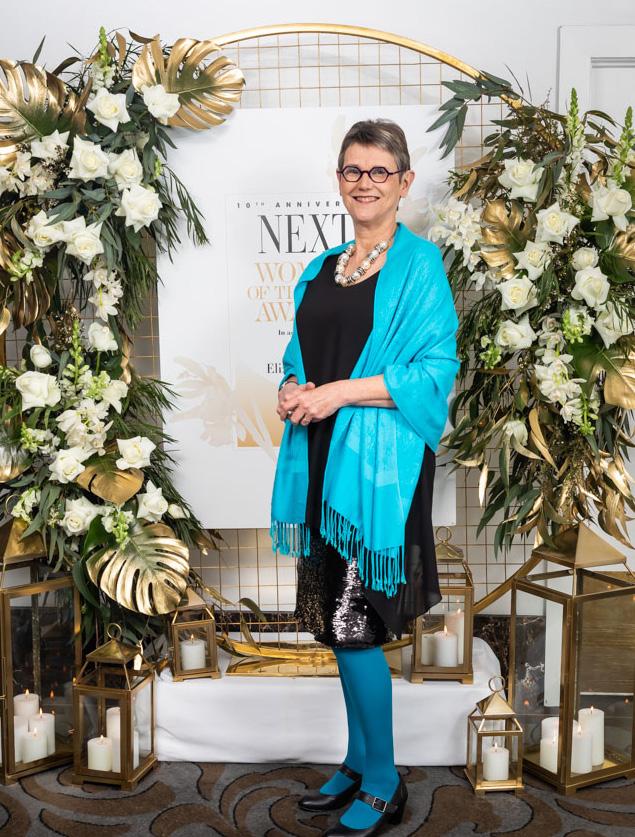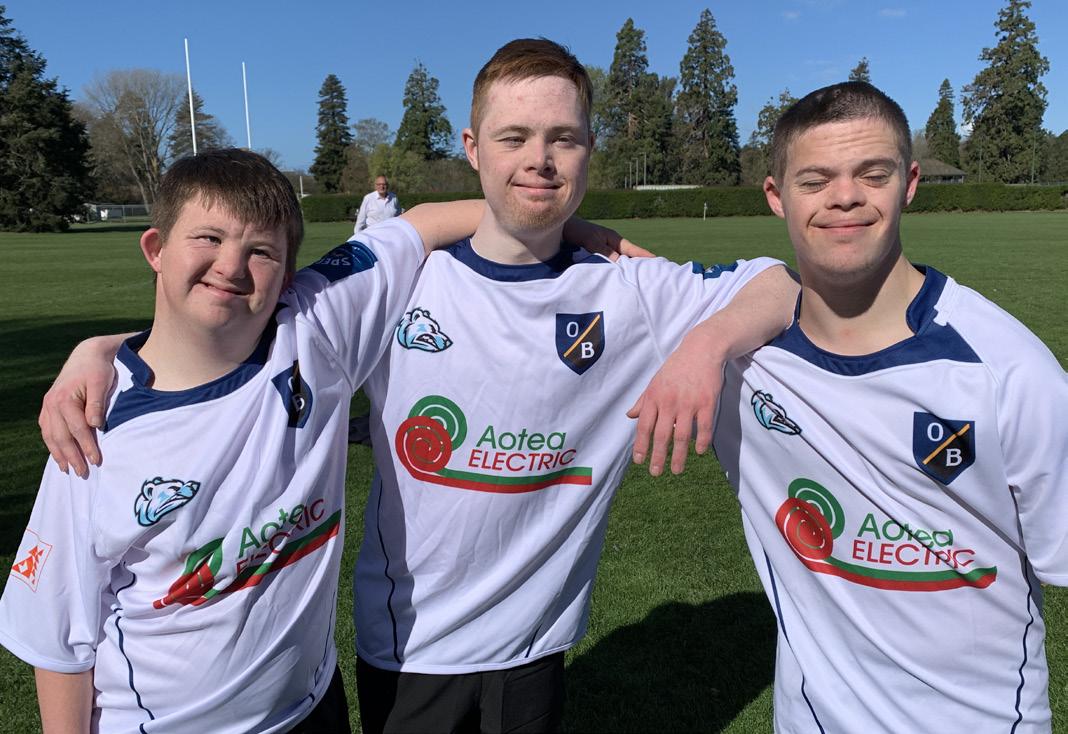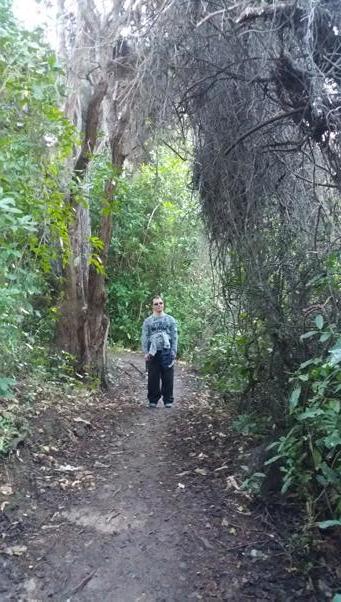
2 minute read
RETIREMENT MAKES TIME FOR RESEARCH
Champion Centre director Susan Foster-Cohen is a familiar face to many families in the Down syndrome community as they have passed through the Christchurch-based early intervention centre. Susan has been a regular contributor to CHAT 21 and in her final piece she reflects on her 17 years before embarking on a new adventure.

It has been my pleasure over almost 17 years as Director of The Champion Centre to facilitate and contribute to research in support of children and families. And while I have now stepped away from the role of Director, I am continuing my research on language and communication development through the University of Canterbury. Now is therefore a good time to reflect on the role the Champion Centre has played, and continues to play, in research that supports children with Down syndrome and their families/whānau. The Champion Centre has a well-deserved reputation for its services to infants and young children with Down syndrome and their families spanning more than 40 years. A hallmark of that reputation has, from the start, been the role that both the production and consumption of up-to-date research on how best to support children’s development has played at the Centre. Although the Centre now serves children with a wide range of challenges to their development, it was Dr Patricia Champion’s doctoral research on engaging parents of children with Down syndrome as partners in early intervention that was the foundation of the Centre’s model of early intervention services. Champion Centre-based research aimed at understanding the development of children with Down syndrome and how best to support each child has continued ever since those early days. Highlights include the doctoral work of Dr Christine Rietveld exploring the transition from preschool to school; the masters work of Clare Tatterson on children’s problem solving abilities; the masters and doctoral work of Dr Anne van Bysterveldt on the emerging literacy skills of children with Down syndrome; and my own work on the role of sign in building early vocabularies, on the importance of developing communication skills to support the emergence of language, and on parent perceptions of children’s successes, challenges and quality of life. Much of this work has appeared in refereed journals and a full list of Champion Research https://www.championcentre.org.nz/championresearch.html can be found on our website. The Centre has also developed more practical supports, including two DVDs produced in collaboration with, and available through the NZDSA, one on sharing books with children and one on the value of routines. We also produced an article by Julie Wylie on the role of musical play for Down Syndrome News and Update, and a booklet for teachers on helping children reach their full potential in early childhood and primary school which is freely available through the Champion Centre website. Beyond our own resources, we have also kept up with practical advice from trusted colleagues such as Down Syndrome International which has just published International Guidelines for the Education of Learners with Down Syndrome. https://www.championcentre.org.nz/resourcesfor-professionals.html.
A true focus on research to practice has been a hallmark of the Champion Centre model of early intervention services and will continue to be so as the Centre moves into its next phase of leadership.









